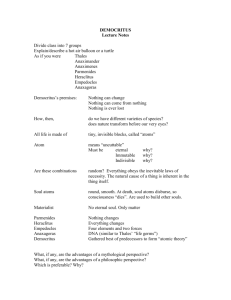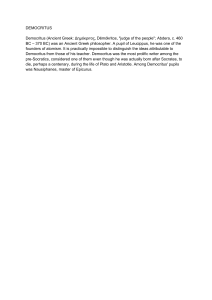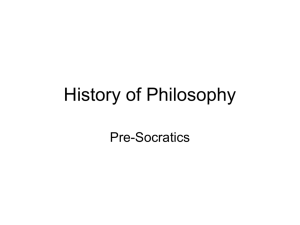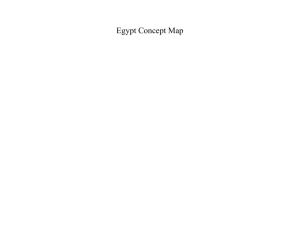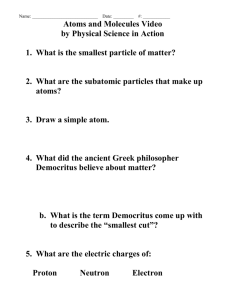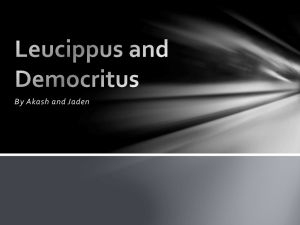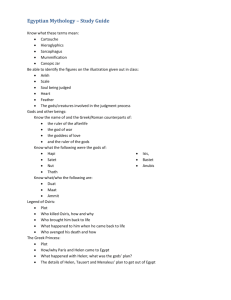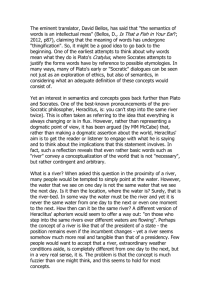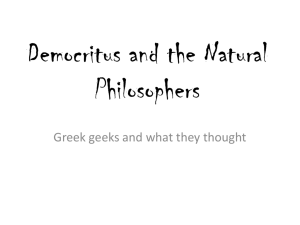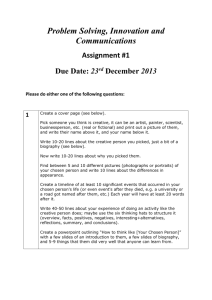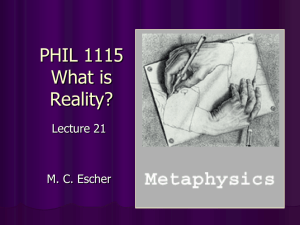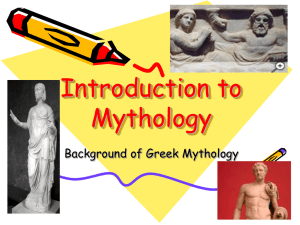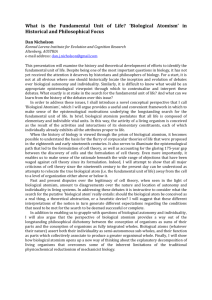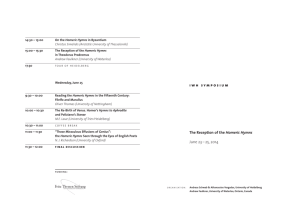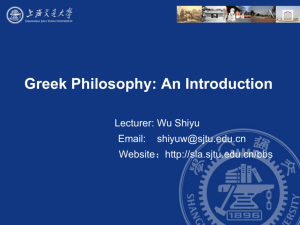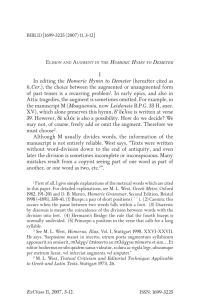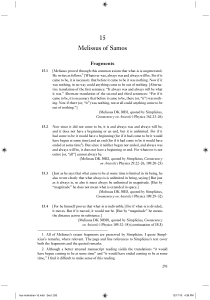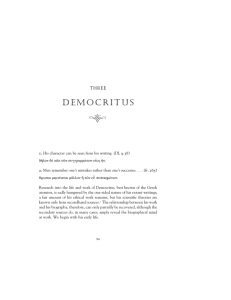HeraclitusDemocritus
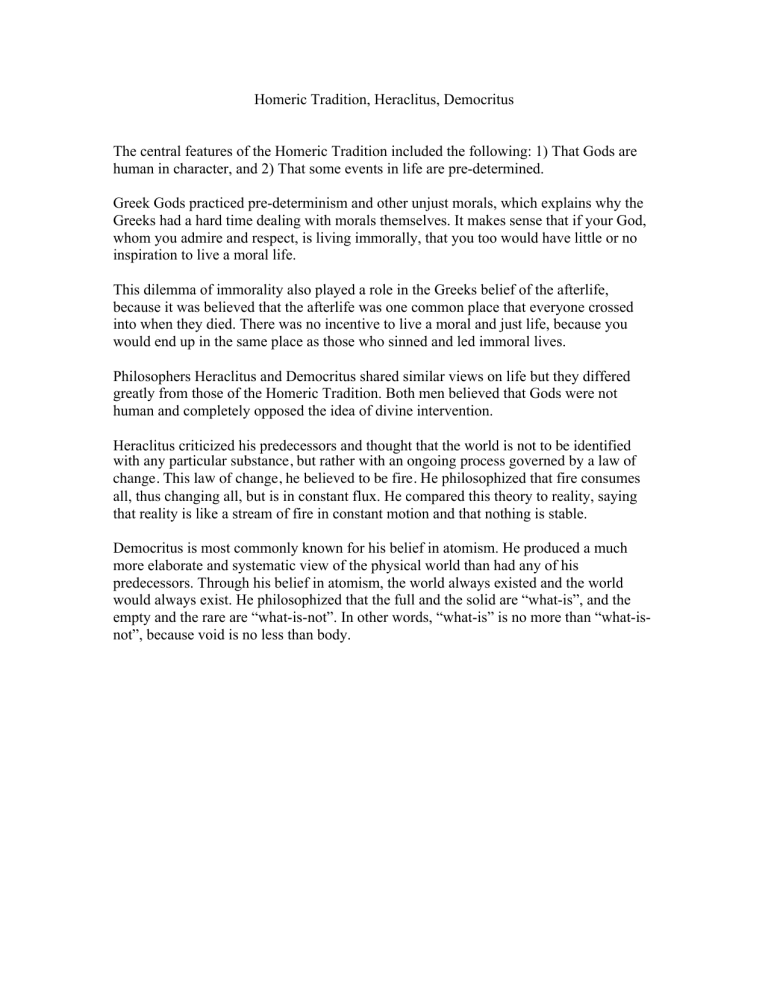
Homeric Tradition, Heraclitus, Democritus
The central features of the Homeric Tradition included the following: 1) That Gods are human in character, and 2) That some events in life are pre-determined.
Greek Gods practiced pre-determinism and other unjust morals, which explains why the
Greeks had a hard time dealing with morals themselves. It makes sense that if your God, whom you admire and respect, is living immorally, that you too would have little or no inspiration to live a moral life.
This dilemma of immorality also played a role in the Greeks belief of the afterlife, because it was believed that the afterlife was one common place that everyone crossed into when they died. There was no incentive to live a moral and just life, because you would end up in the same place as those who sinned and led immoral lives.
Philosophers Heraclitus and Democritus shared similar views on life but they differed greatly from those of the Homeric Tradition. Both men believed that Gods were not human and completely opposed the idea of divine intervention.
Heraclitus criticized his predecessors and thought that the world is not to be identified with any particular substance, but rather with an ongoing process governed by a law of change. This law of change, he believed to be fire.
He philosophized that fire consumes all, thus changing all, but is in constant flux. He compared this theory to reality, saying that reality is like a stream of fire in constant motion and that nothing is stable.
Democritus is most commonly known for his belief in atomism. He produced a much more elaborate and systematic view of the physical world than had any of his predecessors. Through his belief in atomism, the world always existed and the world would always exist. He philosophized that the full and the solid are “what-is”, and the empty and the rare are “what-is-not”. In other words, “what-is” is no more than “what-isnot”, because void is no less than body.
